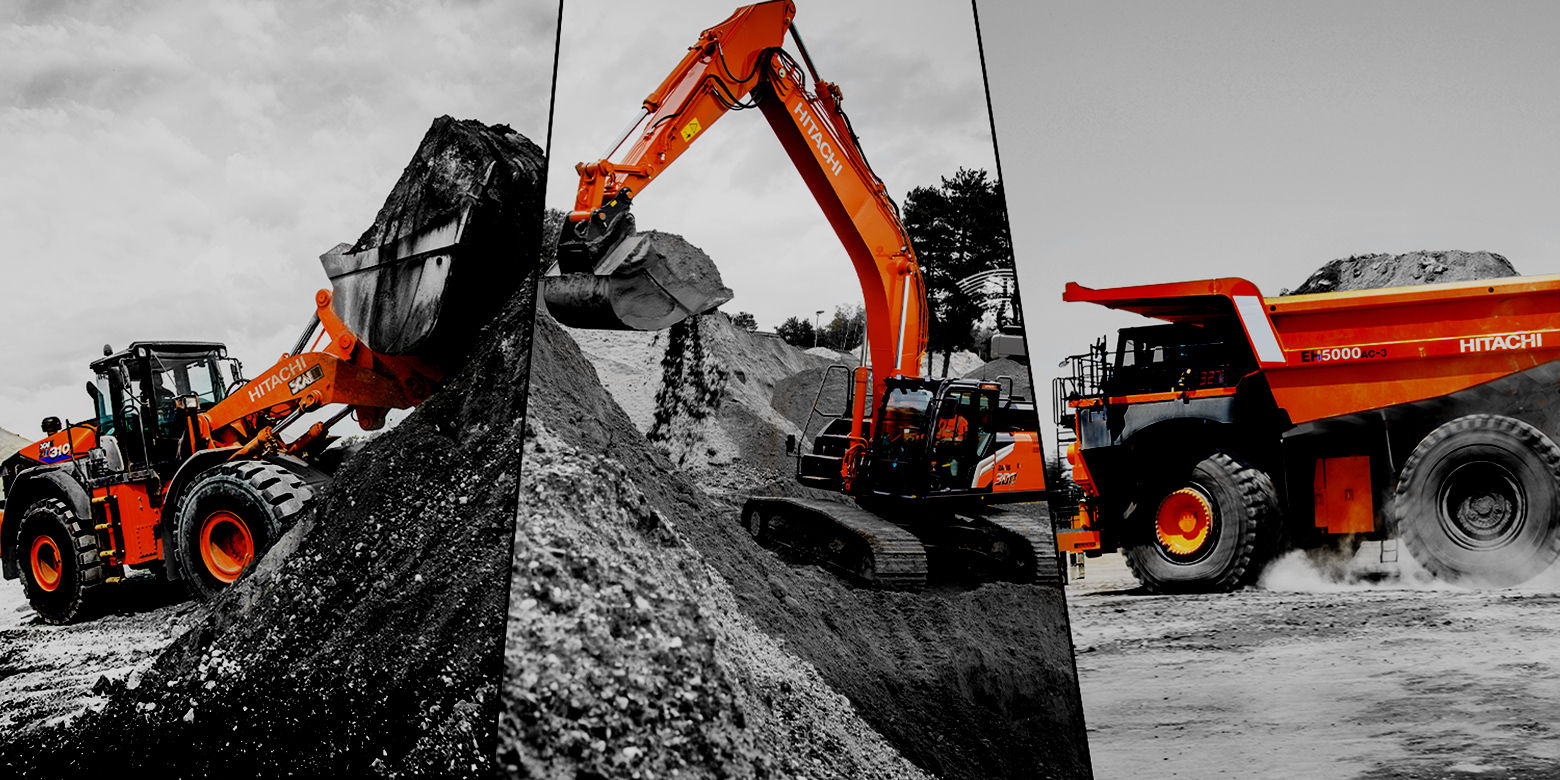Dozer Rental in Tuscaloosa, AL: Reliable and Affordable Heavy Machinery
Dozer Rental in Tuscaloosa, AL: Reliable and Affordable Heavy Machinery
Blog Article
Checking Out the Financial Conveniences of Leasing Construction Equipment Contrasted to Possessing It Long-Term
The decision in between renting and owning building equipment is crucial for monetary management in the sector. Leasing deals immediate expense financial savings and functional versatility, permitting companies to designate resources a lot more effectively. On the other hand, possession comes with substantial long-term monetary commitments, including maintenance and devaluation. As professionals consider these alternatives, the effect on capital, task timelines, and modern technology gain access to becomes increasingly significant. Recognizing these subtleties is crucial, especially when considering just how they line up with details job demands and economic strategies. What factors should be prioritized to ensure ideal decision-making in this complex landscape?

Cost Comparison: Renting Out Vs. Possessing
When examining the financial implications of leasing versus owning building and construction equipment, an extensive price comparison is necessary for making educated choices. The choice in between leasing and having can substantially affect a business's lower line, and comprehending the associated costs is essential.
Leasing construction equipment typically entails reduced upfront expenses, enabling services to assign resources to other functional demands. Rental contracts often consist of flexible terms, making it possible for business to access progressed machinery without long-lasting dedications. This versatility can be especially advantageous for temporary tasks or varying work. Nonetheless, rental costs can accumulate with time, potentially going beyond the expenditure of ownership if tools is needed for an extended period.
On the other hand, owning building and construction tools calls for a significant preliminary financial investment, in addition to ongoing prices such as depreciation, financing, and insurance coverage. While ownership can bring about lasting savings, it additionally locks up resources and might not provide the same level of adaptability as renting. In addition, having equipment demands a dedication to its utilization, which might not constantly align with project demands.
Eventually, the choice to lease or possess ought to be based upon a detailed evaluation of details project requirements, monetary ability, and long-term calculated objectives.

Upkeep Expenses and Obligations
The selection between leasing and possessing construction devices not just includes monetary factors to consider however also includes recurring upkeep expenditures and responsibilities. Having equipment calls for a substantial commitment to its maintenance, that includes routine inspections, fixings, and possible upgrades. These obligations can swiftly build up, leading to unforeseen costs that can stress a budget plan.
In contrast, when leasing equipment, maintenance is normally the obligation of the rental company. This arrangement permits specialists to stay clear of the economic worry related to wear and tear, as well as the logistical difficulties of scheduling fixings. Rental contracts typically include stipulations for maintenance, suggesting that professionals can concentrate on finishing projects instead of fretting about devices problem.
Furthermore, the diverse series of equipment available for rent enables business to select the most up to date designs with sophisticated modern technology, which can enhance effectiveness and productivity - scissor lift rental in Tuscaloosa, AL. By deciding for leasings, organizations can prevent the long-lasting obligation of devices depreciation and the connected upkeep headaches. Eventually, reviewing maintenance expenditures and duties is vital for making a notified choice about whether to own or rent building devices, significantly impacting total project prices and operational effectiveness

Depreciation Effect On Possession

A substantial element to think about in the choice to have construction equipment is the effect of devaluation official source on total possession expenses. Devaluation represents the decline in value of the tools gradually, influenced by variables such as usage, deterioration, and innovations in technology. As equipment ages, its market price decreases, which can substantially affect the owner's financial setting when it comes time to market or trade the equipment.
For construction business, this devaluation can equate to considerable losses if the equipment is not utilized to its fullest possibility or if you can find out more it comes to be obsolete. Proprietors must represent devaluation in their economic forecasts, which can bring about higher total prices compared to renting out. Additionally, the tax ramifications of depreciation can be complicated; while it may provide some tax obligation advantages, these are typically offset by the truth of decreased resale value.
Inevitably, the problem of depreciation highlights the relevance of understanding the lasting financial dedication associated with possessing building equipment. Companies should carefully examine exactly how often they will certainly utilize the equipment and the possible financial impact of depreciation to make an enlightened choice concerning possession versus renting.
Economic Adaptability of Renting
Leasing building tools provides considerable monetary adaptability, enabling companies to designate resources more successfully. This versatility is especially critical in a sector defined by rising and fall job needs and differing workloads. By opting to rent out, companies can prevent the substantial funding outlay required for buying devices, protecting capital for various other operational needs.
Additionally, renting out devices enables business to customize their tools choices to details project requirements without the lasting dedication related to ownership. This implies that organizations can conveniently scale their equipment supply up or down based on current and anticipated task demands. As a result, this adaptability minimizes the threat of over-investment in machinery that might come to be underutilized or outdated gradually.
One more financial benefit of renting is the potential for tax obligation benefits. Rental repayments are commonly thought about operating expenditures, enabling instant tax obligation reductions, unlike devaluation on owned and operated devices, which is spread out over a number of years. scissor lift rental in Tuscaloosa, AL. This immediate cost acknowledgment can better boost a business's money setting
Long-Term Project Considerations
When evaluating the lasting demands of a construction service, the choice between having and leasing tools becomes extra complex. For projects with extended timelines, acquiring equipment might appear useful due to the potential for lower overall costs.
The construction market is progressing swiftly, with brand-new tools offering enhanced effectiveness and used track loaders for sale safety features. This adaptability is especially useful for businesses that deal with varied projects requiring different types of devices.
In addition, monetary stability plays a crucial function. Having equipment often requires significant capital expense and devaluation worries, while leasing permits even more predictable budgeting and money flow. Eventually, the option in between owning and renting out should be lined up with the calculated goals of the building service, taking into consideration both anticipated and present job needs.
Verdict
In verdict, renting out building and construction tools provides significant financial benefits over long-term possession. Inevitably, the decision to rent out instead than own aligns with the dynamic nature of building and construction projects, allowing for versatility and accessibility to the most recent equipment without the economic burdens associated with possession.
As devices ages, its market worth lessens, which can dramatically affect the owner's economic setting when it comes time to trade the tools or market.
Renting out building tools uses significant financial adaptability, permitting business to allocate resources a lot more successfully.In addition, leasing devices enables companies to customize their devices options to certain task demands without the long-term dedication connected with ownership.In final thought, renting building tools provides substantial monetary benefits over lasting possession. Ultimately, the choice to rent rather than very own aligns with the dynamic nature of construction tasks, allowing for adaptability and access to the latest tools without the economic worries associated with possession.
Report this page